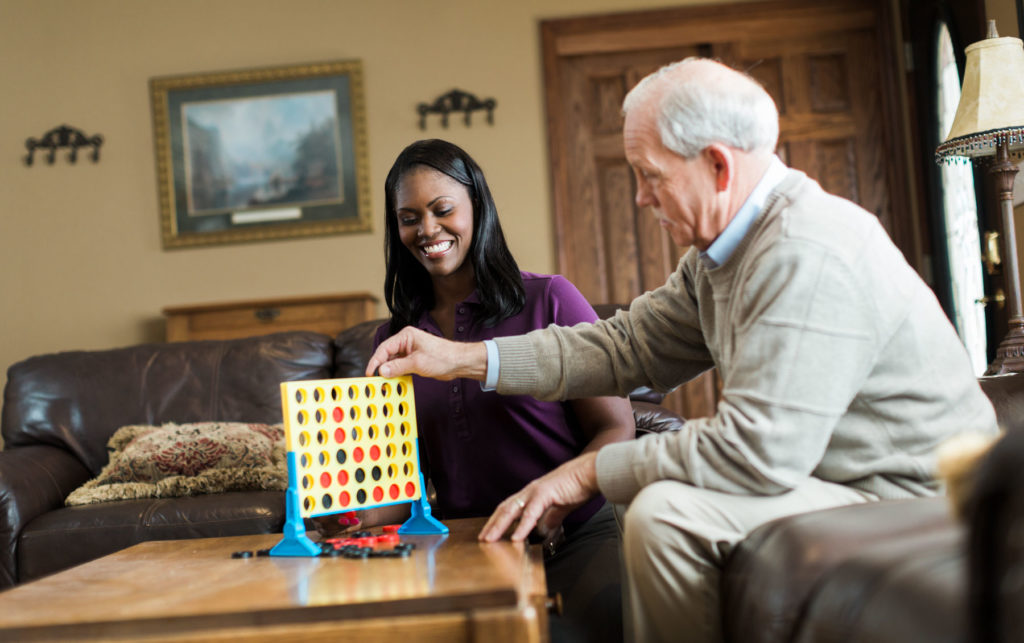Getting older is an inevitability, and many of us are fearful of the ways it might impact our lives or the lives of our loved ones. According to one study by the Alzheimer’s Association, nearly a quarter of people worldwide are most afraid of being diagnosed with Alzheimer’s (second only to cancer at 42%). Losing your memory can have a negative effect on your life as it impacts things you do everyday like work and even family life.
7 ways to stay mentally fit as you age
Thankfully, there are some tried-and-true methods for maintaining an active mind into the later years of your life.
- Stay physically fit – Studies have shown that regular exercise can improve cognitive function in adults of all ages. In particular, dancing has been shown to both increase the size of the hippocampus – the area of the brain responsible for memory, learning, and equilibrium – and improve balance. By combining several brain functions at once, dancing challenges the brain to multitask, thereby increasing neural connectivity.
- Maintain a healthy lifestyle – In addition to exercising, doctors recommend the same lifestyle choices to older people as they do to younger adults: don’t smoke, don’t drink too much, eat healthy food, and sleep well. These lifestyle decisions are the foundations of living a healthy life no matter your age but have been shown to prevent cognitive decline and reduce the risk of dementia in older adults. As for the specific diet, the Mediterranean diet prevents cognitive decline and even slows the progression of dementia in those who have been diagnosed.
- Pursue lifelong learning – Studies have shown that people who received more education throughout their lives have a lower risk of being diagnosed with dementia. The idea is that your brain develops “cognitive reserves” that seem to protect it from memory loss later in life. Even if you didn’t get your Ph.D., you can implement these concepts on your own. Learn something new: volunteer for a position that presses you to build new skills; start a hobby in a mentally stimulating activity like quilting or woodworking; learn to play a new instrument. These activities can help your brain build new neural pathways that will protect it against dementia and memory loss.
- Use your senses – Have you ever smelled something that instantly sparked memories of a specific time and place in your life? Turns out, using your senses like scent, sound, and taste can be a good way to exercise your memory and keep your brain active. That’s because the same part of your brain that processes our sensory input also helps store memories. Perhaps as you cook or try new dishes at your favorite restaurant, use your senses of taste and smell to pinpoint spices and flavors in the dish. Simple exercises like this can stimulate important parts of your brain for memory storage.
- Be empowered – Sometimes, just believing you can maintain an active brain into old age makes all the difference. A study by North Carolina State University has shown that people aged 60 and up performed worse on a memory and arithmetic test when they were told beforehand that their age may negatively affect their performance. Believe that you can maintain a sharp brain, and you’ll likely be better off than someone who thinks they are bound to forget.
- Get organized – If you’ve noticed yourself losing track of things, it might help to get organized. When your brain can’t remember when your doctor’s appointment is or where you placed our keys, you’re wasting valuable energy on things that could simply be written down or established as a habit. Keep track of your appointments on an easy-to-access calendar, and place your often-used items in specific places in your home. With these tricks, you can free up some brain space for more important things.
- Interact with others – Research indicates that people who maintain strong social connections into the later years of their life have a decreased risk for cognitive decline. In fact, some experts say that social connections are as important as physical activity and eating a balanced diet. Besides the cognitive benefits, social people maintain a better mood and higher quality of life than people who are alone. Stay social and enjoy life, and you’ll reap the benefits of a stronger mind.
We’re Here for You
It’s normal to experience changes in your memory and cognitive function as you age. You may notice that you don’t think as quickly on your feet or you can’t focus as well as you used to. However, all of these changes should be subtle. If you’re noticing more drastic changes, reach out to your medical professional. Those changes could be behaviors such as forgetting recent events, experiencing changes in language abilities and comprehension, or getting lost in familiar places.
Home Instead® is there for you if you or your loved one is experiencing memory loss or cognitive decline. In fact, one of our primary goals is to keep you close to your friends and family so that you can maintain the relationships that you hold dear. We believe that your home is the best place to grow old and enjoy the life you’ve built. Please contact us if you’re interested in receiving care through Home Instead®.
